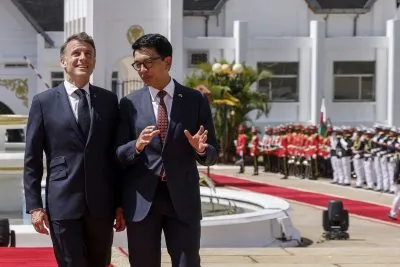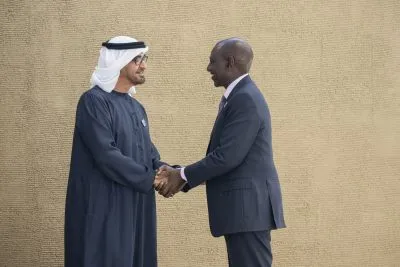While other countries focus more on commercial partnerships with Africa, the US has largely retained a humanitarian focus in its development assistance to the continent. Peter Guest examines the issues.
The Boeing Dreamliner connects Addis Ababa to Beijing, Guangzhou, Rio de Janeiro and São Paulo. Ethiopian Airways was only the second airline to take delivery of the aircraft, an early endorsement for the company in its seemingly eternal, and often brutal, competition with its European counterpart, Airbus. Supporting that deal with risk sharing and finance was the US Ex-Im Bank, which over the past decade has backed $2.2 billion worth of business between Ethiopian Airlines and Boeing.
Ex-Im Bank, established 80 years ago to support US businesses selling products to the Soviet Union, has since become a major financing organisation, backing more than $35bn of transactions in 2013, and helping massive US businesses, such as Boeing, General Electric and Caterpillar, secure orders in emerging markets. Since 1999, more than $5bn has gone to support American businesses in sub-Saharan Africa, including more than $2.2bn over a decade’s worth of deals between Boeing and Ethiopian Airlines. And yet, it is under threat. Congress has to renew the bank’s charter in September, and opposition is building within the Republican party.
Conservative lawmakers have accused the bank of “crony capitalism”, and the new Republican House Majority Leader, Kevin McCarthy, has said repeatedly that he believes the bank’s charter should be allowed to expire. The private sector, McCarthy has said, is better placed to provide the same services.
Jay Timmons, the president of the National Association of Manufacturers, a major US business lobby, has pleaded for the institution to be saved, saying that the services it provides are essential to American competitiveness.
“The debate over the future of the Ex-Im Bank comes down to whether we want products manufactured in the United States by American workers to win sales overseas, or whether we want our foreign competitors and their workers to take this business,” he said in a statement.
“A vote against the Ex-Im Bank is a vote to support growing manufacturing and jobs overseas and not in the United States.”
Other corporate heavyweights have come out to support the bank, which could be an important institution in broadening and deepening US corporate involvement in Africa, which has often remained heavily focused on the energy sector and held back by perceptions of risk. The tussle over Ex-Im Bank also neatly encapsulates the US government’s difficulties in helping its companies to expand into Africa and compete with the massive investment from Asia. Ideology, and internal disputes on the role of the state, continue to hamstring their efforts.
“While some elements in the Republican Party are openly debating the role of the US Ex-Im Bank, China is increasing its capacity in this area,” says Amadou Sy, a senior fellow in the Africa Growth Initiative at the Brookings Institution.
While Chinese government agencies have massively expanded their support for their companies overseas, moving quickly to pursue a pragmatic and proactive agenda of corporate expansion into fast-growing African markets, the US government has often seemed way behind the curve.
A White House summit in August is likely to be dominated by discussions over peace and security, but a solitary day devoted to commercial relations could create a framework for a more constructive engagement, Sy says.
Want to continue reading? Subscribe today.
You've read all your free articles for this month! Subscribe now to enjoy full access to our content.
Digital Monthly
£8.00 / month
Receive full unlimited access to our articles, opinions, podcasts and more.
Digital Yearly
£70.00 / year
Our best value offer - save £26 and gain access to all of our digital content for an entire year!
 Sign in with Google
Sign in with Google 


